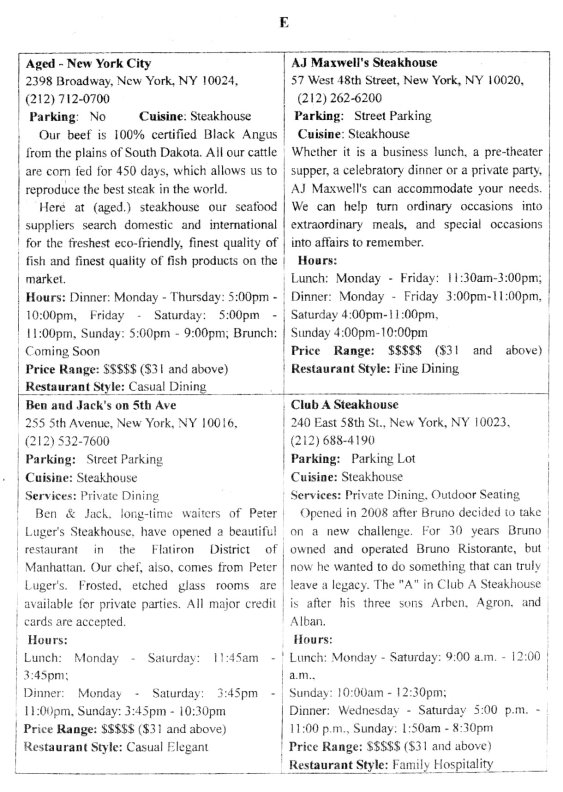题目内容
“Can’t hold a candle to” is a popular expression.When there wasn’t electricity, someone would have a servant light his way by holding a candle.The expression meant that the person who cannot hold a candle to you is not fit even to be your servant.Now,it means such a person cannot compare or compete.
Another expression is“hold your tongue.”It means to be still and not talk.“Hold your tongue”is not something you would tell a friend.But a parent or teacher might use the expression to quiet a noisy child.
“Hold out”is an expression one hears often in sports reports and labor news.It means to refuse to play or work.Professional football and baseball players“hold out” if their team refuses to pay them what they think they are worth.
The expression“hold up” has several different meanings.One is a robbery.A man with a gun may say,“This is a hold up.Give me your money.”Another meaning is to delay.A driver who was held up by heavy traffic might be late for work.Another meaning is for a story to be considered true after an investigation.A story can hold up if it is proved true.
“Hold on”is another expression,which means wait or stop.As you leave for school,your brother may say,“Hold on,you forgot your book.” It is used to ask a telephone caller to wait and not hang up his telephone.
Our final expression is“hold the line.”That means to keep a problem or situation from getting worse—to hold steady.For example,the president may say he will“hold the line on taxes.”He means there will be no increase in taxes.
1.The author introduces the expressions mainly by _____________.
A.giving examples B.making comparisons
C.raising questions D.quoting famous remarks
2.The expression“can’t hold a candle to”call be used when ____________.
A.some footballers refuse to play a game
B.someone else is wanted on the phone
C.someone is not qualified for a position
D.someone was delayed by heavy traffic
3.The tune ofthe phrase“hold your tongue”is probably a little ___________.
A.amusing B.polite C.unfriendly D.offensive
4.If some teachers“hold out”,they probably __________.
A.change their artitude B.refuse to work
C.make a compromise D.show their devotion
5.Which of the following sentences can convey positive meanings?
A.I was late as I was held up by a hold up.
B.Hold on!You have to pay the bill,sir.
C.You can’t even hold a candle to Michael.
D.I promise to hold the line on house prices.
1.A
2.C
3.C
4.B
5.D
【解析】本文介绍了英语中几个常用的短语,介绍了每个短语的内在含义和具体使用语境并举例进行了说明。
1.A
【试题解析】推理题。根据文章第三段Professional football and baseball players“hold out” if their team refuses to pay them what they think they are worth.先是提出hold out这个短语,然后再举例说明这个短语的用法。所以本文是通过举例说明的方法来组织全文的。故A正确。
2.2】C
【试题解析】推理题。根据第一段后2行The expression meant that the person who cannot hold a candle to you is not fit even to be your servant.Now,it means such a person cannot compare or compete.这个短语是指那些不会给你拿蜡烛的人是不适合做你的仆人的,也就是说这样的人是不合格的。故该短语是指C项含义。
3.3】C
【试题解析】推理题。根据文章第二段Another expression is“hold your tongue.”It means to be still and not talk.“Hold your tongue”is not something you would tell a friend.课hold your tongue表示让对方不要说话,保持安静。这是一个不太礼貌的用语。不是我们经常和朋友讲的用语。故C正确。
4.4】B
【试题解析】推理题。根据文章第三段第二句.It means to refuse to play or work.可知hold out表示罢工或者拒绝工作。如果老师hold out说明老师拒绝上课了。故B项正确。
5.5】D
【试题解析】推理题。根据文章最后一段That means to keep a problem or situation from getting worse—to hold steady可知hold the line表示不让事情失败,让事情保持稳定。这个短语表示的是褒义。故D正确。
【长难句解析】
“Hold out”is an expression one hears often in sports reports and labor news.
【翻译】“Hold out”是一个人们经常在体育报道和劳动法律里经常听见的短语。
【分析】本句中含有一个定语从句one hears often in sports reports and labor news这个定语从句用来修饰先行词an expression,在先行词后面省略了that/which指代先行词在句中做hear的宾语,可以省略。


 are easier to get more weight as they grow, according to a new study.
are easier to get more weight as they grow, according to a new study. ing computer and video games.
ing computer and video games.